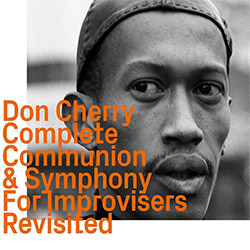
Following a 1964 Albert Ayler tour, trumpeter Don Cherry remained in Europe, working on new concepts of improvising based on form itself, developing his concepts with saxophonist Gato Barbieri, vibraphonist Karl Berger & bassist J.F. Jenny Clark, composing two brilliant albums: 1966's Communion with Barbieri, Henry Grimes & Ed Blackwell; and in 1967 Symphony for Improvisers as a septet.
In Stock
Quantity in Basket: None
Log In to use our Wish List
Shipping Weight: 3.00 units
EU & UK Customers:
Discogs.com can handle your VAT payments
So please order through Discogs
Sample The Album:
Don Cherry-cornet
Gato Barbieri-tenor saxophone
Pharoah Sanders-tenor saxophone
Karl Berger-vibes, piano
Ed Blackwell-drums
Henry Grimes-double bass
J.F. Jenny-Clark-double bass
Click an artist name above to see in-stock items for that artist.
UPC: 752156112228
Label: ezz-thetics by Hat Hut Records Ltd
Catalog ID: ezz-thetics 1122
Squidco Product Code: 31072
Format: CD
Condition: New
Released: 2021
Country: Switzerland
Packaging: Cardboard Gatefold
Complete Communion recorded December 24, 1965 at Van Gelder Studio. Symphony for Improvisers recorded September 19, 1966 at Van Gelder Studio. Complete Communion originally released on LP on the Blue Note label in 1966 as catalog codes BLP 4226 & BST 84226 (mono & stereo). Symphony For Improvisers originally released on LP on the Blue Note label in 1967 as catalog codes BLP 4247 and BST 84247 (mono & stereo).
"The 1960s were a decade of diversity and discovery for Don Cherry. They began with him an important part of Ornette Coleman's pathbreaking quartet, and ended as he ventured deeply into the musics of Turkey, India, the Caribbean, South America, and the northern and sub-Saharan regions of Africa in the process of defining his distinctive approach to a world music. But the first six years plot a course of exploration and revelation that led to the crystallization of these two masterpieces, Complete Communion and Symphony for Improvisers.
Their brilliance lies in the balance, and contrast, of formal organization and improvisational freedom - and especially the way that the form initiates and inspires the improvisational content. The musicians Cherry assembled for these recordings are certainly responsible for much of their ultimate success. But these specific groupings, and the concept which Cherry created for, and with, them only emerged from a journey of unprecedented and far-reaching experiences.
Consider. Between 1960 and 1965, prior to Complete Communion, the peripatetic trumpeter recorded - while dissecting varying degrees of song form and stylistic freedom - with Coleman, John Coltrane, Steve Lacy, Sonny Rollins, the New York Contemporary 5 (with Archie Shepp and John Tchicai), Albert Ayler, George Russell, and Sunny Murray. To this end, the most significant liaisons were with Ornette's free elaboration of melody, the torrential thematic free-association of Rollins, and the spiritually free extremes of Ayler. It would seem that these remarkable collaborations should have focused Cherry's vision on the expediency of free improvisation, and yet he had a larger, more integrated, scope in mind.
"We can improvise from forms, not just a tune. I am working on setting up forms." So Cherry explained his burgeoning concept in an interview in down beat magazine's year-end index, Music '64. The date is important. Shortly thereafter, Cherry remained in Europe following a tour with Ayler, and put together his own quintet, with Argentinean-expatriate saxophonist Gato Barbieri, German vibist and pianist Karl Berger, French bassist J.F. Jenny Clark, and Italian drummer Aldo Romano. Early in 1965, in Paris, this group recorded the neglected album Togetherness (Durium), the first foray into Cherry's extended concept. Rather than titling individual tunes, he separated the music into five "movements" which identified form as a succession of events - alternately planned and spontaneous. To continue his earlier comment, "If a feeling is strong enough and complete enough, it will swing. 'Change' has meant chord changes in modern jazz. A 'change' should be more of a modulation of mood." The mood shifts here included Ayleresque fanfares, bluesy and boppish melodic contours, Spanish-style roulades, weaving together seamlessly the themes and solos.
Throughout 1965 Cherry bonded with these musicians, as he had with Ed Blackwell in his days with Ornette, and with bassist Henry Grimes during Sonny Rollins' 1963 European/Scandinavian tour. So when Blue Note offered Cherry an album date on Christmas Eve 1965, he chose Barbieri (the only one of the European quintet to come to the States), Grimes, and Blackwell to further develop his interactive compositional/improvisational theories. The suite format of Complete Communion may be heard as a structured extension of the long, spontaneously shape-shifting "medleys" of the free-flowing Rollins quartet, with interlocking rhythms and unison patterns. The first theme in the initial section is actually carried over from the fifth movement of Togetherness, and cyclically returns again at the suite's end, to reinforce the continuity in Cherry's strategy.
Cherry returned to Europe in 1966, reunited the original quintet (with bassist Bo Stief occasionally substituting for J.F. Jenny Clark), and continued to perform "Complete Communion" and "Elephantasy" in concerts. The live documents we have of "Complete Communion" range from 13 minutes to 26 minutes in length, showing how flexible Cherry saw the suite form to be, and in fact incorporated non-original themes like "A Taste of Honey" and Antonio Carlos Jobim's "Insensatez" into the flow. (Likewise, one version of "Elephantasy" used Ornette's "Blues Connotation" and Cherry's theme "Awake Nu," shortly thereafter to be recorded and so titled on the album Where is Brooklyn?, to confirm the point.)
When Cherry recorded Symphony for Improvisers in September 1966, he combined three of the experienced members of the European quintet with the rhythm section of the earlier album, adding the uncharacteristic, piquant tone of Pharoah Sanders' piccolo along with his more familiar exorcistic tenor saxophone. While the so-called Symphony is based upon the same formal principle as Complete Communion, including moods that encompass exhilaration, contemplation, a sentimental ballad, and a simple Ayleresque theme resembling Scottish bagpipes, the expanded colors emphasize the "for improvisers" qualifier in the title - the suite format now seems looser, with the form not as predictably predetermined, and more space for the solos. Karl Berger's tart vibes and piano receive their initial exposure to American jazz audiences, and Barbieri shows that over two years and three albums with Cherry his penchant for powerful and coherent motivic soloing grew progressively wilder with expressionist tactics.
Though Don Cherry's all-embracing quest soon led him to explore the breadth of world folk and improvised musics to fashion an "organic" and unifying blend of styles, his achievement on these two albums prove that a "complete communion" of sounds and human sensibilities had always been his goal."-Art Lange, Chicago, August 2021

The Squid's Ear!
Artist Biographies
• Show Bio for Don Cherry "Imagination and a passion for exploration made Don Cherry one of the most influential jazz musicians of the late 20th century. A founding member of Ornette Coleman's groundbreaking quartet of the late '50s, Cherry continued to expand his musical vocabulary until his death in 1995. In addition to performing and recording with his own bands, Cherry worked with such top-ranked jazz musicians as Steve Lacy, Sonny Rollins, Archie Shepp, Albert Ayler, John Coltrane, and Gato Barbieri. Cherry's most prolific period came in the late '70s and early '80s when he joined Nana Vasconcelos and Collin Walcott in the worldbeat group Codona, and with former bandmates Charlie Haden and Ed Blackwell, and saxophonist Dewey Redman in the Coleman-inspired group Old and New Dreams. Cherry later worked with Vasconcelos and saxophonist Carlos Ward in the short-lived group Nu. The Avant-Garde Born in Oklahoma City in 1936, he first attained prominence with Coleman, with whom he began playing around 1957. At that time Cherry's instrument of choice was a pocket trumpet (or cornet) -- a miniature version of the full-sized model. The smaller instrument -- in Cherry's hands, at least -- got a smaller, slightly more nasal sound than is typical of the larger horn. Though he would play a regular cornet off and on throughout his career, Cherry remained most closely identified with the pocket instrument. Cherry stayed with Coleman through the early '60s, playing on the first seven (and most influential) of the saxophonist's albums. In 1960, he recorded The Avant-Garde with John Coltrane. After leaving Coleman's band, Cherry played with Steve Lacy, Sonny Rollins, Archie Shepp, and Albert Ayler. In 1963-1964, Cherry co-led the New York Contemporary Five with Shepp and John Tchicai. With Gato Barbieri, Cherry led a band in Europe from 1964-1966, recording two of his most highly regarded albums, Complete Communion and Symphony for Improvisers. Cherry began the '70s by teaching at Dartmouth College in 1970, and recorded with the Jazz Composer's Orchestra in 1973. He lived in Sweden for four years, and used the country as a base for his travels around Europe and the Middle East. Cherry became increasingly interested in other, mostly non-Western styles of music. In the late '70s and early '80s, he performed and recorded with Codona, a cooperative group with percussionist Nana Vasconcelos and multi-instrumentalist Collin Walcott. Codona's sound was a pastiche of African, Asian, and other indigenous musics. Art Deco Concurrently, Cherry joined with ex-Coleman associates Charlie Haden, Ed Blackwell, and Dewey Redman to form Old and New Dreams, a band dedicated to playing the compositions of their former employer. After the dissolution of Codona, Cherry formed Nu with Vasconcelos and saxophonist Carlos Ward. In 1988, he made Art Deco, a more traditional album of acoustic jazz, with Haden, Billy Higgins, and saxophonist James Clay. Multikulti Until his death in 1995, Cherry continued to combine disparate musical genres; his interest in world music never abated. Cherry learned to play and compose for wood flutes, tambura, gamelan, and various other non-Western instruments. Elements of these musics inevitably found their way into his later compositions and performances, as on 1990's Multi Kulti, a characteristic celebration of musical diversity. As a live performer, Cherry was notoriously uneven. It was not unheard of for him to arrive very late for gigs, and his technique -- never great to begin with -- showed on occasion a considerable, perhaps inexcusable, decline. In his last years, especially, Cherry seemed less self-possessed as a musician. Yet his musical legacy is one of such influence that his personal failings fade in relative significance." ^ Hide Bio for Don Cherry • Show Bio for Gato Barbieri "Leandro "Gato" Barbieri (28 November 1932 – 2 April 2016) was an Argentine jazz tenor saxophonist who rose to fame during the free jazz movement in the 1960s and is known for his Latin jazz recordings of the 1970s. His nickname, Gato, is Spanish for "cat". Born to a family of musicians, Barbieri began playing music after hearing Charlie Parker's "Now's the Time". He played the clarinet and later the alto saxophone while performing with the Argentinean pianist Lalo Schifrin in the late 1950s. By the early 1960s, while playing in Rome, he also worked with the trumpeter Don Cherry. By now influenced by John Coltrane's late recordings, as well as those from other free jazz saxophonists such as Albert Ayler and Pharoah Sanders, he began to develop the warm and gritty tone with which he is associated. In the late 1960s, he was fusing music from South America into his playing and contributed to multi-artist projects like Charlie Haden's Liberation Music Orchestra and Carla Bley's Escalator Over The Hill. His score for Bernardo Bertolucci's 1972 film Last Tango in Paris earned him a Grammy Award and led to a record deal with Impulse! Records. By the mid-1970s, he was recording for A&M Records and moved his music towards soul-jazz and jazz-pop. Caliente! (1976) included his best known song, a rendition of Carlos Santana's "Europa". That and the follow-up album, Ruby Ruby (1977) were both produced by fellow musician and label co-founder, Herb Alpert. Although he continued to record and perform well into the 1980s, including composing the scores to films such as Firepower (1979) and Strangers Kiss (1983), the death of his wife Michelle led him to withdraw from the public arena. He returned to recording and performing in the late 1990s, composing original scores at the behest of friend Bahman Maghsoudlou for Amir Naderi's Manhattan by Numbers (1991) and Daryush Shokof's Seven Servants (1996). The album Qué Pasa (1997) moved more into the style of smooth jazz. Barbieri was the inspiration for the character Zoot in the fictional Muppet band Dr. Teeth and The Electric Mayhem. On April 2, 2016, Barbieri died of pneumonia in New York City at the age of 83. On 25 June 2019, The New York Times Magazine listed Gato Barbieri among hundreds of artists whose material was reportedly destroyed in the 2008 Universal fire." ^ Hide Bio for Gato Barbieri • Show Bio for Pharoah Sanders "Pharoah Sanders (born October 13, 1940) is an American jazz saxophonist. Saxophonist Ornette Coleman once described him as "probably the best tenor player in the world." Emerging from John Coltrane's groups of the mid-1960s, Sanders is known for his overblowing, harmonic, and multiphonic techniques on the saxophone, as well as his use of "sheets of sound". Sanders is an important figure in the development of free jazz; Albert Ayler famously said: "Trane was the Father, Pharoah was the Son, I am the Holy Ghost". Pharoah Sanders was born Farrell Sanders on October 13, 1940 in Little Rock, Arkansas. His mother worked as a cook in a school cafeteria, and his father worked for the City of Little Rock. An only child, Sanders began his musical career accompanying church hymns on clarinet. His initial artistic accomplishments were in art, but when he was at Scipio Jones High School in North Little Rock, Sanders began playing the tenor saxophone. The band director, Jimmy Cannon, was also a saxophone player and introduced Sanders to jazz. When Cannon left, Sanders, although still a student, took over as the band director until a permanent director could be found. During the late 1950s, Sanders would often sneak into African-American clubs in downtown Little Rock to play with acts that were passing through. At the time, Little Rock was part of the touring route through Memphis, Tennessee, and Hot Springs for R&B and jazz musicians, including Junior Parker. Sanders found himself limited by the state’s segregation and the R&B and jazz standards that dominated the Little Rock music scene. After finishing high school in 1959, Sanders moved to Oakland, California, and lived with relatives. He briefly attended Oakland Junior College and studied art and music. Once outside the Jim Crow South, Sanders could play in both black and white clubs. His Arkansas connection stuck with him in the Bay Area with the nickname of “Little Rock.” It was also during this time that he met and befriended John Coltrane. Pharoah Sanders began his professional career playing tenor saxophone in Oakland, California. He moved to New York City in 1961 after playing with rhythm and blues bands. He received his nickname "Pharoah" from bandleader Sun Ra, with whom he was performing. After moving to New York, Sanders had been destitute: "He was often living on the streets, under stairs, where ever he could find to stay, his clothes in tatters." Sun Ra gave him a place to stay, bought him a new pair of green pants with yellow stripes (which Sanders hated but had to have), encouraged him to use the name 'Pharoah', and gradually worked him into the band." Sanders came to greater prominence playing with John Coltrane's band, starting in 1965, as Coltrane began adopting the avant-garde jazz of Albert Ayler, Sun Ra and Cecil Taylor. Sanders first performed with Coltrane on Ascension (recorded in June 1965), then on their dual-tenor recording Meditations (recorded in November 1965). After this Sanders joined Coltrane's final quintet, usually performing very lengthy, dissonant solos. Coltrane's later style was strongly influenced by Sanders. Although Sanders' voice developed differently from Coltrane, Sanders was strongly influenced by their collaboration. Spiritual elements such as the chanting in Om would later show up in many of Sanders' own works. Sanders would also go on to produce much free jazz, modified from Coltrane's solo-centric conception. In 1968 he participated in Michael Mantler and Carla Bley's Jazz Composer's Orchestra Association album The Jazz Composer's Orchestra, featuring Cecil Taylor, Don Cherry, Larry Coryell and Gato Barbieri. Pharoah's first album, Pharoah's First, wasn't what he expected. The musicians playing with him where much more straightforward than Sanders, which made the solos played by the other musicians a bit out of place. Starting in 1966 Sanders signed with Impulse! and recorded Tauhid that same year. His years with Impulse! caught the attention of jazz fans, critics, and musicians alike, including John Coltrane, Ornette Coleman, and Albert Ayler. In the 1970s, Sanders continued to produce his own recordings and also continued to work with the likes of Alice Coltrane on her Journey In Satchidananda album. Most of Sanders' best-selling work was made in the late 1960s and early 1970s for Impulse Records, including the 30-minute wave-on-wave of free jazz "The Creator has a Master Plan" from the album Karma. This composition featured vocalist Leon Thomas's unique, "umbo weti" yodeling, and Sanders' key musical partner, pianist Lonnie Liston Smith, who worked with Sanders from 1969-1971. Other members of his groups in this period include bassist Cecil McBee, on albums such as Jewels of Thought, Izipho Zam, Deaf Dumb Blind and Thembi. Although supported by African-American radio, Sanders' brand of free jazz became less popular. From the experiments with African rhythms on the 1971 album Black Unity (with bassist Stanley Clarke) onwards he began to diversify his sound. In the late 1970s and 1980s, Sanders explored different musical modes including R&B (Love Will Find a Way), modal jazz, and hard bop. Sanders left Impulse! in 1973 and redirected his compositions back to earlier jazz conventions. He continued to explore the music of different cultures and refine his compositions. However, he found himself floating from label to label. He found a permanent home with a small label called Theresa in 1987, which was sold to Evidence in 1991. However Sanders would continue to be frustrated with record labels for most of the 1990s. Also during this time, he went to Africa for a cultural exchange program for the U.S. State Department. Sanders’s major-label return would finally come in 1995 when Verve Records released Message from Home, followed by Save Our Children (1998). But again, Sanders’s disgust with the recording business prompted him to leave the label. In 1992, Sanders appears on a reissue (Ed Kelly and Pharoah Sanders) for the Evidence label of a recording that he completed for Theresa Records in 1979 entitled Ed Kelly and Friend. The 1992 version contains extra tracks which feature Pharoah's pupil Robert Stewart (saxophonist). This was Stewart's first recording for a jazz label. In 1994 he traveled to Morocco to record the Bill Laswell-produced album The Trance Of Seven Colors with Gnawa musician Mahmoud Guinia. The same year, Sanders appeared on the Red Hot Organization's album, Stolen Moments: Red Hot + Cool, on the track "This is Madness" with Umar Bin Hassan and Abiodun Oyewole and the bonus track, "The Creator Has A Master Plan (Trip hop Remix)." The album was named "Album of the Year" by Time. Sanders worked with Laswell, Jah Wobble, and others on the albums Message From Home (1996) and Save Our Children (1999). In 1999, he complained in an interview that despite his pedigree, he had trouble finding work. In 1997 he was featured on several Tisziji Munoz albums also including Rashied Ali. In the 2000s, a resurgence of interest in jazz kept Sanders playing festivals including the 2007 Melbourne Jazz Festival and the 2008 Big Chill Festival, concerts, and releasing albums. He has a strong following in Japan, and in 2003 recorded with the band Sleep Walker. In 2000, Sanders released Spirits and, in 2003, a live album titled The Creator Has a Master Plan. He was awarded an NEA Jazz Masters Fellowship for 2016 and was honored at a tribute concert in Washington DC on April 4, 2016." ^ Hide Bio for Pharoah Sanders • Show Bio for Karl Berger "Karl Berger is a six time winner of the Downbeat Critics Poll as a jazz soloist, recipient of numerous Composition Awards ( commissions by the National Endowment for the Arts, the New York State Council on the Arts, the Rockefeller Foundation, European Radio and Television: WDR, NDR, SWF, Radio France, Rai Italy. SWF-Prize 1994 ). Professor of Composition, Artist-in-Residence at universities, schools and festivals worldwide; PhD in Music Esthetics. Karl Berger became noted for his innovative arrangements for recordings by Jeff Buckley ("Grace"), Natalie Merchant ("Ophelia"), Better Than Ezra, The Cardigans, Jonatha Brooke, Buckethead, Bootsie Collins, The Swans, Sly + Robbie, Angelique Kidjo a.o.; and for his collaborations with producers Bill Laswell, Alan Douglas ("Operazone"), Peter Collins, Andy Wallace, Craig Street, Alain Mallet, Malcolm Burn, Bob Marlett a.m.o. in Woodstock, NY. New York City, Los Angeles, Tokyo, London, Paris, Rome. He recorded and performed with Don Cherry, Lee Konitz, John McLaughlin, Gunther Schuller, the Mingus Epitaph Orchestra, Dave Brubeck, Ingrid Sertso, Dave Holland, Ed Blackwell, Ray Anderson, Carlos Ward, Pharoah Sanders, Blood Ulmer, Hozan Yamamoto and many others at festivals and concerts in the US, Canada, Europe, Africa, India, Phillippines, Japan, Mexico, Brazil. His recordings and arrangements appear on the Atlantic, Axiom, Black Saint, Blue Note, Capitol, CBS, Columbia Double Moon, Douglas Music, Elektra , EMI, Enja, Island, JVC, Knitting Factory, In&Out, MCA, Milestone, Polygram, Pye , RCA, SONY, Stockholm, Vogue a.o. Founder and director of the Creative Music Foundation, Inc., dba The Creative Music Studio, a not-for-profit corporation, dedicated to the research of the power of music and sound and the elements common to all of the world's music forms; and to educational presentations through workshops, concerts, recordings, with a growing network of artists and CMS members worldwide.Conducted CMS Residencies worldwide. In the 90s, Dr. Berger was Professor of Composition and Dean of Music Education at the Hochschule fuer Musik, Frankfurt / Germany. Chairman of the Music Department at UMass Dartmouth till 2006.Now re-establishing CMS programming in collaboration with producer Rob Saffer, directing the CMS Archive Project, recording and producing. Performing internationally with the Allstar Ensemble "In the Spirit of Don Cherry" and with numerous projects, collaborating with vocalist/poet Ingrid Sertso ( contact CreativeMusicAgency@gmail.com ). Recording a Trlogy of Piano Music for Tzadik Records. Collaborating with bassist Ken Filiano, vocalist Ingrid Sertso (KIK) + guitarist Kenny Wessel (KIKK). The Karl Berger Improvisers Orchestra, completed 75 performances in New York since the Spring of 2011 (see BLOG at www.karlberger.org). New collaboration in Europe with drummer Baby Sommer, bassist Antonio Borghini, guitarist Carsten Radtke, vocalist/poet Ingrid Sertso (DIFFERENT STANDARDS). Collaborating with cornetist Ken Knuffke, violinist Jason Hwang, saxophonists Ivo Perelman, Peter Apfelbaum, Mercedes Figueras, drummers Harvey Sorgen, Tani Tabbal, Warren Smith, Tyshawn Sorey. bassists Joe Fonda, Mark Helias, Max Johnson, William Parker, trumpeter Steven Bernstein and others for recordings and performances." ^ Hide Bio for Karl Berger • Show Bio for Ed Blackwell "Edward Joseph Blackwell (October 10, 1929 - October 7, 1992) was an American jazz drummer born in New Orleans, Louisiana, known for his extensive, influential work with Ornette Coleman. Blackwell's early career began in New Orleans in the 1950s. He played in a bebop quintet that included pianist Ellis Marsalis and clarinetist Alvin Batiste. There was also a brief stint touring with Ray Charles. The second line parade music of New Orleans greatly influenced Blackwell's drumming style and could be heard in his playing throughout his career. Blackwell first came to national attention as the drummer with Ornette Coleman's quartet around 1960, when he took over for Billy Higgins in the quartet's stand at the Five Spot in New York City. He is known as one of the great innovators of the free jazz of the 1960s, fusing New Orleans and African rhythms with bebop. In the 1970s and 1980s Blackwell toured and recorded extensively with fellow Ornette Quartet veterans Don Cherry, Charlie Haden, and Dewey Redman in the quartet Old and New Dreams. In the late 1970s Blackwell became an Artist-in-Residence at Wesleyan University in Middletown, Connecticut. Blackwell was a beloved figure on the Wesleyan Campus until he died. In 1981, he performed at the Woodstock Jazz Festival, held in celebration of the tenth anniversary of the Creative Music Studio. "The Ed Blackwell Project" members were Mark Helias, bass, Carlos Ward, alto sax/flute, and Graham Haynes (son of drummer Roy Haynes), cornet. After years of kidney problems, Blackwell died in 1992. The following year he was inducted into the Down Beat Jazz Hall of Fame." ^ Hide Bio for Ed Blackwell • Show Bio for Henry Grimes "As of the beginning of 2016, master jazz musician Henry Grimes (acoustic bass, violin, poetry, illustrations) had played more than 615 concerts in 31 countries (including many festivals) since 2003, when he made his astonishing return to the music world after 35 years away. He was born and raised in Philadelphia and attended the Mastbaum School (1949-52) and Juilliard (1952-54). As a youngster in the '50's and early '60's, he came up in the music playing and touring with Willis "Gator Tail" Jackson, Arnett Cobb, "Bullmoose" Jackson, "Little" Willie John, King Curtis, and a number of other great R&B / soul musicians; but drawn to jazz, he went on to play, tour, and record with many great jazz musicians of that era, including Albert Ayler, Don Cherry, Benny Goodman, Coleman Hawkins, Roy Haynes, Lee Konitz, Steve Lacy, Charles Mingus, Thelonious Monk, Gerry Mulligan, Sunny Murray, Sonny Rollins, Pharoah Sanders, Archie Shepp, Cecil Taylor, and McCoy Tyner. Sadly, a trip to the West Coast to work with Al Jarreau and Jon Hendricks went awry, leaving Henry in Los Angeles at the end of the '60's with a broken bass he couldn't pay to repair, so he sold it for a small sum and faded away from the music world. Many years passed with nothing heard from him, as he lived in his tiny rented room in an S.R.O. hotel in downtown Los Angeles, working as a manual laborer, custodian, and maintenance man, and writing many volumes of handwritten poetry. He was discovered there by a Georgia social worker in 2002 and was given a bass by William Parker, and after only a few weeks of ferocious woodshedding, Henry emerged from his room to begin playing concerts around Los Angeles and shortly afterwards made a triumphant return to New York City in May, 2003 to play in the Vision Festival. Since then, often working as a leader, he has played, toured, and / or recorded with many of this era's musical and literary heroes, such as Chris Abani, Rashied Ali, Geri Allen, Marshall Allen, Barry Altschul, Fred Anderson, Tatsu Aoki, Newman Taylor Baker, Billy Bang, Harrison Bankhead, Amiri Baraka, Joey Baron, Hamiet Bluiett, Dave Burrell, Roy Campbell Jr., Alex & Nels Cline, Cooper-Moore, Marilyn Crispell, Connie Crothers, Ted Curson, Andrew Cyrille, Thulani Davis, Toi Derricotte, Bill Dixon, Pierre Dorge, Hamid Drake, Paul Dunmall, Cornelius Eady, Kahil El'Zabar, Douglas Ewart, Bobby Few, Charles Gayle, Melvin Gibbs, Yoriyuki Harada, Craig Harris, Graham Haynes, Karma Mayet Johnson, Edward "Kidd" Jordan, Andrew Lamb, Nathaniel Mackey, Maria Mitchell, Nicole Mitchell, Roscoe Mitchell, Elaine Mitchener, Louis Moholo-Moholo, Meredith Monk [recording only], Jemeel Moondoc, Jason Moran, David Murray, Sunny Murray, Amina Claudine Myers, Zim Ngqawana, Kresten Osgood, William Parker, HPrizm (High Priest, Kyle Austin), Odean Pope, Avreeayl Ra, Tomeka Reid, Vernon Reid, Marc Ribot, Matana Roberts, Orphy Robinson, Brandon Ross, Lee Mixashawn Rozie, Mark Sanders, Rasul Siddik, Wadada Leo Smith, Warren Smith, Tyshawn Sorey, Sekou Sundiata, Tani Tabbal, Jamaaladeen Tacuma, Aldo Tambellini, Greg Tate, Cecil Taylor (reunion), Chad Taylor, John Tchicai, Pat Thomas, Henry Threadgill, Edwin Torres, Dwight Trible, Jeff "Tain" Watts, Ed Wilkerson Jr., James Zollar, John Zorn, and too many others to list here. In the past few years, Henry has also held a number of residencies and offered workshops and master classes on major campuses, including: Berklee College of Music (Boston); Buffalo Academy for Visual & Performing Arts (upstate New York); CalArts, hosted by Wadada Leo Smith (Valencia, California); the Carlucci School, with Andrew Lamb and Newman Taylor Baker (Portugal); Hamilton College of Performing Arts, with Rashied Ali (upstate New York); Humber College (Toronto); JazzInstitut Darmstadt (Germany); Mills College, hosted by Roscoe Mitchell (Oakland, California); New England Conservatory (Boston, Massachusetts); Scuole Bruscio and Scuole Poschiavo (Switzerland); the University of Gloucestershire at Cheltenham (U.K.); University of Illinois at Urbana-Champaign, Illinois; University of Michigan at Ann Arbor; and several more. Henry can be heard on about a dozen new recordings, made his professional debut on a second instrument (the violin) at the age of 70 alongside Cecil Taylor at Lincoln Center, has seen the publication of the first volume of his poetry, "Signs Along the Road," by a publisher in Cologne, and creates illustrations to accompany his new recordings and publications. He has received many honors in recent years, including four Meet the Composer grants. Mr. Grimes can be heard on 90+ recordings on various labels, including Atlantic, Ayler Records, Blue Note, Columbia, ESP-Disk, ILK Music, Impulse!, JazzNewYork Productions, Pi Recordings, Porter Records, Prestige, Riverside, and Verve. He is the subject of a new biography published in London, "Music to Silence to Music: A Biography of Henry Grimes" by Dr. Barbara Frenz, with a beautiful foreword by Sonny Rollins (http://tinyurl.com/h9f8mo4). And on July 7th, 2016, Henry received a Lifetime Achievement Award and played a full evening of concerts with groups of his own choosing in the Arts for Art / Vision Festival at Judson Memorial Church in New York City , where he had also played and recorded with Albert Ayler's group back in the '60s. Henry Grimes is now a permanent resident of New York City and welcomes students here." ^ Hide Bio for Henry Grimes • Show Bio for J.F. Jenny-Clark "Jean-François "J.F." Jenny-Clark (12 July 1944 in Toulouse, France - 6 October 1998 in Paris) was a French double bass player. He was estimated as one of the most important bass players of European jazz. Together with drummer Aldo Romano he provided the rhythm section for Don Cherry's European quintet of 1965, recorded with Steve Lacy and performed concerts with Keith Jarrett (around 1970) and for Jasper van 't Hof's group Pork Pie (with Charlie Mariano) (around 1975). As a member of Diego Massons ensemble Musique Vivante he was interpreting contemporary music compositions by John Cage, Luciano Berio, Mauricio Kagel, Karlheinz Stockhausen, Pierre Boulez, or Vinko Globokar. Together with Albert Mangelsdorff he led the German-French jazz ensemble, 1984 to 1987. Since 1985 Jenny-Clark was mainly working in an acclaimed trio with German pianist Joachim Kühn and Swiss drummer Daniel Humair." ^ Hide Bio for J.F. Jenny-Clark
6/25/2025
Have a better biography or biography source? Please Contact Us so that we can update this biography.
6/25/2025
Have a better biography or biography source? Please Contact Us so that we can update this biography.
6/25/2025
Have a better biography or biography source? Please Contact Us so that we can update this biography.
6/25/2025
Have a better biography or biography source? Please Contact Us so that we can update this biography.
6/25/2025
Have a better biography or biography source? Please Contact Us so that we can update this biography.
6/25/2025
Have a better biography or biography source? Please Contact Us so that we can update this biography.
6/25/2025
Have a better biography or biography source? Please Contact Us so that we can update this biography.
Track Listing:
1. Complete Communion 20:39
2. Elephantasy 19:37
3. Symphony For Improvisers mov.1 19:44
4. Symphony For Improvisers mov.2 19:20
Hat Art
Improvised Music
Jazz
Free Improvisation
NY Downtown & Metropolitan Jazz/Improv
Quartet Recordings
Septet recordings
Jazz Reissues
Staff Picks & Recommended Items
Top Sellers for 2021 by Customer Sales
Search for other titles on the label:
ezz-thetics by Hat Hut Records Ltd.

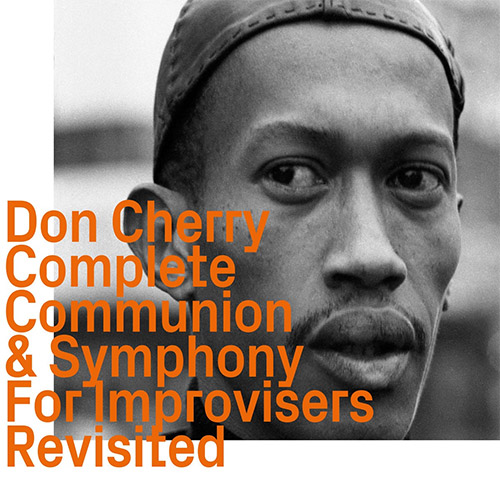
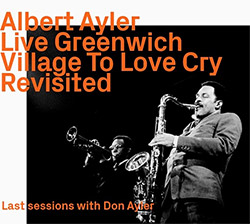
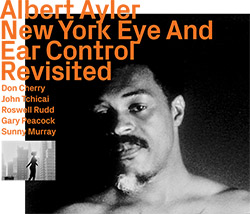


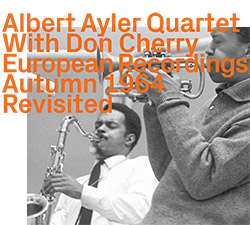
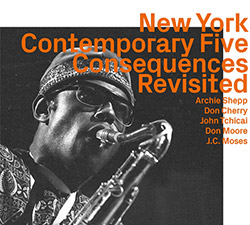
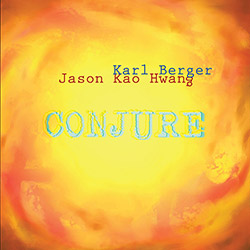

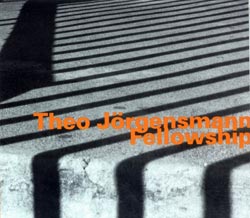

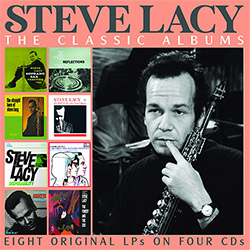


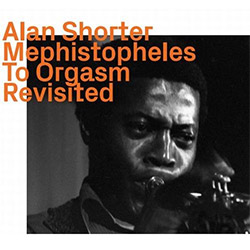
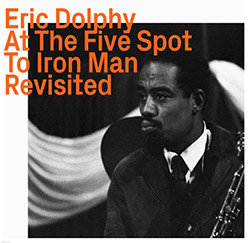
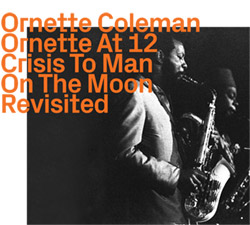




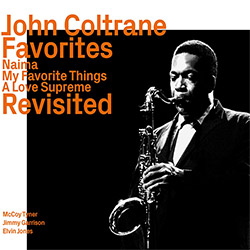
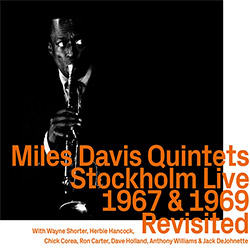







![Eternities: Rides Again [CASSETTE]](https://www.teuthida.com/productImages/misc4/36247.jpg)

![Lopez, Francisco: Untitled (2021-2022) [2 CDs]](https://www.teuthida.com/productImages/misc4/36438.jpg)




![Eventless Plot | Haarvol: The Subliminal Paths [CASSETTE + DOWNLOAD]](https://www.teuthida.com/productImages/misc4/36232.jpg)












![Eventless Plot | Francesco Covarino: Methexis [CASSETTE + DOWNLOAD]](https://www.teuthida.com/productImages/misc4/36231.jpg)

![Brown, Dan / Dan Reynolds: Live At The Grange Hall [unauthorized][CASSETTE]](https://www.teuthida.com/productImages/misc4/36245.jpg)





![Das B (Mazen Kerbaj / Mike Majkowski / Magda Mayas / Tony Buck): Love [VINYL]](https://www.teuthida.com/productImages/misc4/36329.jpg)


![Hemphill Stringtet, The: Plays the Music of Julius Hemphill [VINYL]](https://www.teuthida.com/productImages/misc4/36409.jpg)



![Halvorson, Mary Septet: Illusionary Sea [2 LPS]](https://www.teuthida.com/productImages/misc4/17952.jpg)




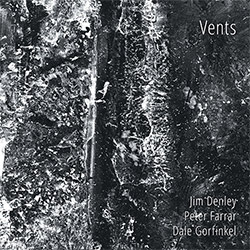
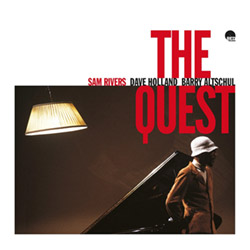
![Re-Ghoster Extended: The Zebra Paradox [VINYL]](https://www.teuthida.com/productImages/misc4/36204.jpg)
![FDF Trio: Possibility And Prejudices From Within A Cup [VINYL]](https://www.teuthida.com/productImages/misc4/36205.jpg)
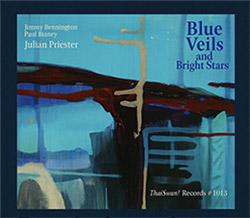

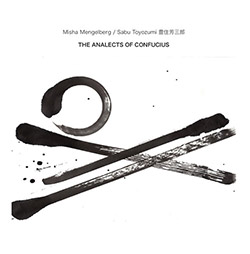

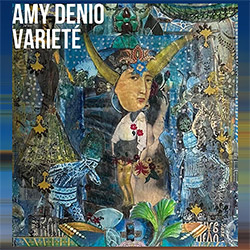



![Money : Money 2 [2 CDs]](https://www.teuthida.com/productImages/misc4/35894.jpg)




![Klinga, Erik: Elusive Shimmer [VINYL]](https://www.teuthida.com/productImages/misc4/36258.jpg)
![CHANGES TO blind (Phil Zampino): Volume 9 - I Wave on a Fine Vile Mist [CD + DOWNLOAD]](https://www.teuthida.com/productImages/misc4/36061.jpg)

![Wallmart / Rubbish: Asset Protection [split CD]](https://www.teuthida.com/productImages/misc4/35900.jpg)


![+Dog+: The Family Music Book Vol. 5 [2 CDs]](https://www.teuthida.com/productImages/misc4/35897.jpg)
![Kuvveti, Deli : Kuslar Soyledi [CASSETTE w/ DOWNLOAD]](https://www.teuthida.com/productImages/misc4/36107.jpg)

![Nakayama, Tetsuya: Edo Wan [CASSETTE w/ DOWNLOAD]](https://www.teuthida.com/productImages/misc4/36105.jpg)




![Yiyuan, Liang / Li Daiguo: Sonic Talismans [VINYL]](https://www.teuthida.com/productImages/misc4/35957.jpg)






![Palestine, Charlemagne / Seppe Gebruers: Beyondddddd The Notessssss [VINYL]](https://www.teuthida.com/productImages/misc4/36206.jpg)
![Palestine, Charlemagne / Seppe Gebruers: Beyondddddd The Notessssss [NEON GREEN VINYL]](https://www.teuthida.com/productImages/misc4/36207.jpg)

![Laubrock, Ingrid: Purposing The Air [2 CDs]](https://www.teuthida.com/productImages/misc4/35639.jpg)

![Yoko, Ono / The Great Learning Orchestra: Selected Recordings From Grapefruit [2 CDs]](https://www.teuthida.com/productImages/misc4/35841.jpg)









![Zorn, John / JACK Quartet: The Complete String Quartets [2 CDs]](https://www.teuthida.com/productImages/misc4/35609.jpg)

![Lonsdale, Eden: Dawnings [2 CDs]](https://www.teuthida.com/productImages/misc4/35480.jpg)



![Sorry For Laughing (G. Whitlow / M. Bates / Dave-Id / E. Ka-Spel): Rain Flowers [2 CDS]](https://www.teuthida.com/productImages/misc4/35985.jpg)

![Rolando, Tommaso / Andy Moor : Biscotti [CASSETTE w/ DOWNLOADS]](https://www.teuthida.com/productImages/misc4/36106.jpg)


![Electric Bird Noise / Derek Roddy: 8-10-22 [CD EP]](https://www.teuthida.com/productImages/misc4/35970.jpg)








![Elephant9 : Mythical River [VINYL]](https://www.teuthida.com/productImages/misc4/34624.jpg)



![Elephant9 with Terje Rypdal: Catching Fire [VINYL 2 LPs]](https://www.teuthida.com/productImages/misc4/35355.jpg)
![Deerlady (Obomsawin, Mali / Magdalena Abrego): Greatest Hits [VINYL]](https://www.teuthida.com/productImages/misc4/34876.jpg)







![Surplus 1980: Illusion of Consistency [CD]](https://www.teuthida.com/productImages/misc4/35069.jpg)
![Staiano, Moe: Away Towards the Light [VINYL + DOWNLOAD]](https://www.teuthida.com/productImages/misc4/35037.jpg)
![Coley, Byron: Dating Tips for Touring Bands [VINYL]](https://www.teuthida.com/productImages/misc4/17906.jpg)

![Lost Kisses: My Life is Sad & Funny [DVD]](https://www.teuthida.com/productImages/misc4/lostKissesDVD.jpg)